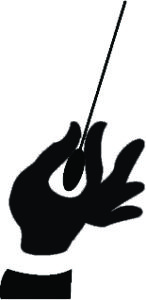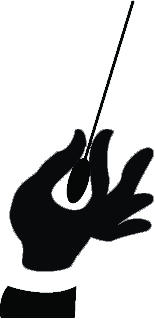Every director says, “look up!”
Instantly, all handbell musicians freeze and panic. “What if I lose my place?” “How will I find my way back into the music” or, worse “WHAT IF I MAKE A MISTAKE?!!”
What I know is that looking up from the score takes practice. Years of practice. I can personally attest to vowing to look up for the first measure when I am singing. The director’s hands are steady. I look at the director. The director looks at me. The director moves their hand and I look down at my score only to find that the note is still an E and if I’d trusted myself to take the risk, I’d have been right on!
Techniques to Build Your Looking Up Skills
1) Remember that rehearsal is where you practice. Usain Bolt didn’t wake up one morning able to set world records at the 100 and 200 meter sprints. He practiced. He failed. He practiced some more! Be like Usain Bolt.
2) Promise yourself that you will always look up during at least the first measure of every piece of music. As you get ready to begin, take a mental snapshot of your first measure and look at the director. You will shake in your shoes, but, with practice, you’ll be come an expert at looking up at the start of every piece.
the start of every piece.
3) Mark the things that change in your score like, tempos (ritards, accelerandi, fermatas and the like) and practice looking for cues from the director. If you speed by the marks you made without noticing, make different marks that will get your attention. Directors give particular information at these moments. Work to look at their gesture so you can interpret what they want you to do. Practice works!
4) Memorize the last few measures of every score. This is a tall order, but directors often want a great deal from their musicians at the end of a piece of music. There are ritards and molto (great big) ritards. There are caesurae (complete stops), fermatas (pauses) and much more. What if the entire ensemble was 100% in tune with the director as the last sounds of the music are gifted to the listeners? Wouldn’t that be magic! Practice is your friend.
Lastly, remember F.I.J.I.—Failure Is Just Information. When your efforts fall sort of your hoped for action, regroup and analyze what went wrong.
